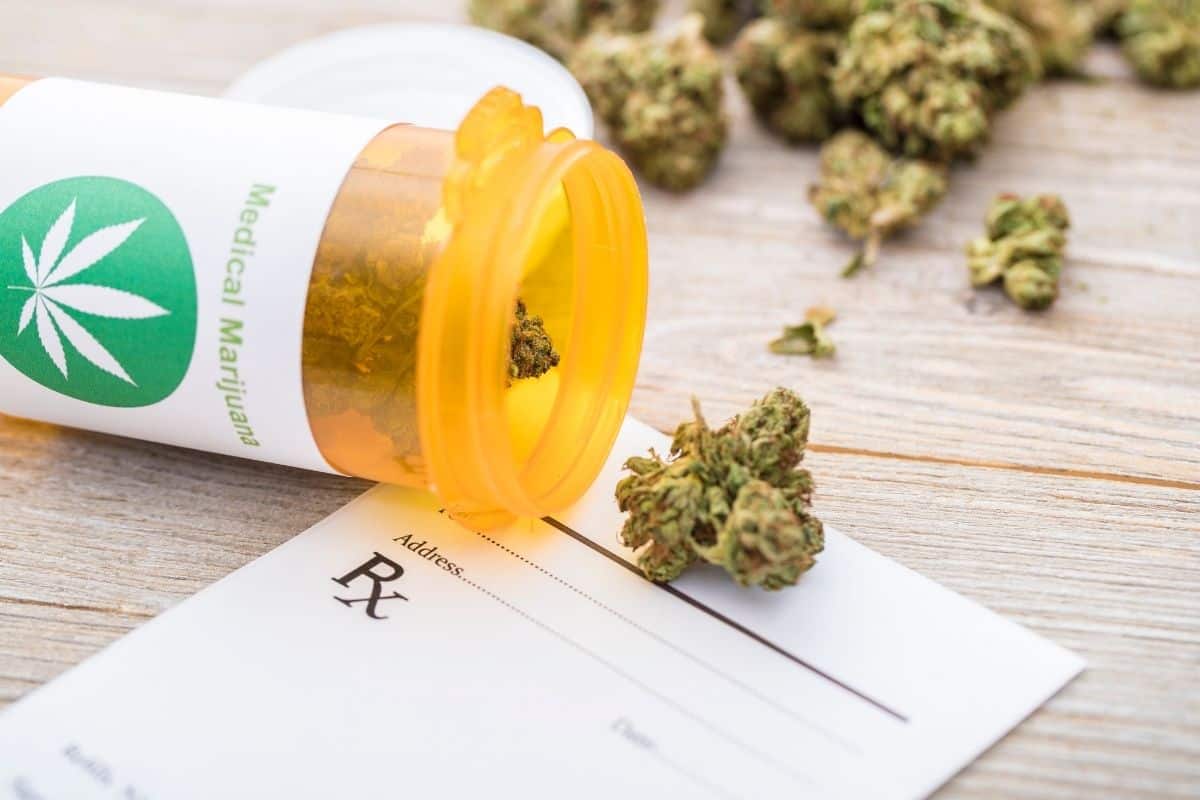Despite the product’s long-standing stigma, medical marijuana has, in recent years, been utilized legally to treat a variety of medical problems.
Medicinal marijuana has been shown to aid with a variety of health issues, including anxiety, insomnia, nausea, and cancer treatments.
The Substance Enforcement Agency still classifies marijuana as a Schedule One drug, although certain states have moved to legalize or decriminalize the possession and consumption of small amounts, namely those recommended for medical purposes.
This means that when it comes to Medicare coverage and prescriptions, medical marijuana is currently stuck in ethical and legal ambiguity.
In this article, we will be discussing whether medical marijuana is actually covered by Medicare, and how else you can ease your uncomfortable symptoms.
Table of contents
What Is Medical Marijuana (And Is It Legal?)
Medical cannabis is a wide term that refers to any cannabis-based treatment that is used to alleviate the unpleasant and/or painful symptoms of certain medical conditions, both mental and physical.
It is also, sometimes, referred to as medical cannabis.
Cannabis sativa, the principal ingredient in medical marijuana, includes a wide range of active chemicals.
Delta-9 tetrahydrocannabinol (THC) and cannabidiol (CBD) are the most well-known.
THC is the active component in marijuana that causes users to feel euphoric, or ‘high’.
The use of whole plant Cannabis sativa, or its derivatives for any purpose, is illegal in many regions of the United States.
CBD extracted from hemp plants (less than 0.3 percent THC) is, on the other hand, allowed under federal law.
Medical marijuana has been known to ease the symptoms of several medical concerns. Here are a couple of conditions that CBD, and medical marijuana, is used for in many states across the US:

- Anxiety
- Insomnia
- Nausea
- Muscle stiffness
- Loss of appetite
- Pain
- Epileptic seizures
- Cancer treatment
Does Medicare Cover Medical Marijuana?
Although it is acceptable for a doctor to prescribe medical marijuana in certain states, the drug continues to remain illegal in the eyes of the federal government, which means no federal program may fund marijuana access.
Marijuana is a Schedule One drug, which means it has not been fully proved to be useful for medicinal use, and cannot even be examined for its therapeutic characteristics.
As a result, Medicare does not currently cover medical marijuana.
Cannabis has not been approved by the Food and Drug Administration (FDA) as a safe and effective treatment for any medical condition.
Even if you reside in a state where it is medically permissible, this is still the case.
Will Medicare Ever Cover Medical Marijuana?
It’s crucial to remember that, while Medicare is a federal program, it’s handled at the state and local level.
As a consequence, different states may have varied coverage and benefit requirements.
The federal portion of the equation establishes basic criteria, although states have significant flexibility.
Therefore, it is feasible that legislation in states where medical marijuana is currently permitted could alter in the future.
As more states legalize recreational marijuana, the Drug Enforcement Administration may be pushed to remove the Schedule One classification as a result of an overwhelming majority of citizens and states disobeying federal law.
It is possible that federal monies may be used to pay for medicinal marijuana prescriptions if this happens. But that is just speculation at the moment.
Are There Any Medical Marijuana Benefits Offered By Medicare Advantage Plans?
Medicare Part C, also known as Medicare Advantage, is a type of health insurance provided by commercial insurance firms that supplements basic Medicare coverage (parts A and B).
Dental and vision care, as well as certain prescription medicines, may be covered by this plan.
Despite Medicare Advantage plans frequently including benefits beyond those provided by Original Medicare, it is unlikely that a Medicare Advantage plan provider will give medicinal marijuana coverage.
Part of the explanation for this is that insurance companies that sell Medicare Advantage plans must still follow the federal rules that govern Original Medicare.
Part D of Medicare is prescription drug coverage that is also available through private firms. However, it excludes medical marijuana.
Although, since cannabinoid drugs like dronabinol (Marinol, Syndros) and Epidiolex have been approved by the FDA, they may be covered by Medicare drug plans.
If you have any questions about your Medicare prescription medication coverage, contact them directly. They can tell you if you have coverage for cannabinoid medications, and how to have a prescription filled if so.
Medical Marijuana Alternatives

Despite the fact that Medicare beneficiaries are currently unable to use the program to pay for medical marijuana, there are a handful of co-op organizations in legal states that help medical marijuana patients with out-of-pocket costs.
Alternative therapy, such as drugs given by your doctor and reimbursed under Medicare Part D, may also be considered.
Many people turn to medical marijuana to avoid pharmaceuticals because they have had bad experiences with certain medications in the past.
However, you might be surprised to learn that newer drug therapies are now available that may work better than older versions. And Medicare Part D will possibly reimburse all or a huge proportion of the expense.
To find out more, consult a specialist about your specific issues to determine whether a medical marijuana option exists without the headaches of figuring out whether Medicare will cover the expense owing to the national law.
Final Thoughts
Since medical marijuana is illegal and not approved by the FDA, Medicare will not cover the expense.
However, certain cannabinoid-based drugs may be covered by Medicare, depending on the legal status of the medication.
It is important to remember that, even in places where marijuana is allowed for recreational use. You must first obtain a medical marijuana license before purchasing cannabis goods.
Consult your doctor if you’re unsure whether medical marijuana is right for you.
Your doctor may not believe cannabis products are the best option for you. But, you can discuss your symptoms and explore for alternatives together.
We hope you found this article informative and useful.
Frequently Asked Questions
Cannabidiol (CBD) is a chemical in the Cannabis sativa plant, also known as cannabis or hemp. One specific form of CBD is approved as a drug in the U.S. for seizures.
Though it’s often well-tolerated, CBD can cause side effects, such as dry mouth, diarrhea, reduced appetite, drowsiness and fatigue. CBD can also interact with other medications you’re taking, such as blood thinners. Another cause for concern is the unreliability of the purity and dosage of CBD in products.
People considering or using CBD products should always consult their doctor before doing so, especially if they are taking other medications. Or have underlying medical conditions like liver disease, kidney disease, epilepsy, heart problems, a weakened immune system, or are taking medications that can weaken the immune system (such as cancer medications).
